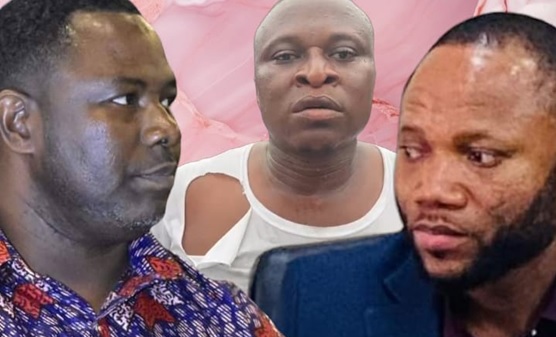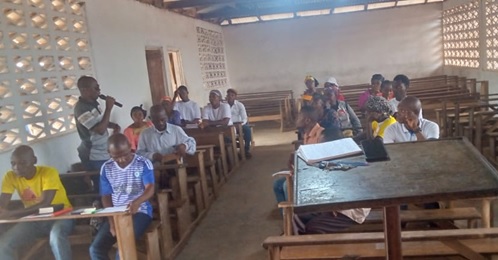MONROVIA – In a dramatic turn of events, internal discontent within the ruling Unity Party (UP) of President Joseph Boakai has reached a boiling point, with key members demanding the removal of two prominent figures: Party Chairman Rev. Luther Tarpeh and Secretary General Amos Tweh. The controversy centers around allegations of selfishness and greed, as both leaders hold significant positions in government while maintaining influential roles within the party.
Rev. Luther Tarpeh, who currently serves as the Board Chairman of the National Port Authority (NPA), and Amos Tweh, the Managing Director of the Liberia Petroleum Refinery Corporation (LPRC), are at the heart of this storm. Disenchanted party members accuse them of neglecting their duties within the party, leading to embarrassing closures of their offices and a lack of transparency and accountability.
This mounting frustration has prompted partisans to plan protests at the party’s headquarters on Board Street. A notable incident on May 31, 2024, underscored the severity of the situation, as internal factions clashed violently over a scheduled press conference. The confrontation required intervention from the Liberia National Police, highlighting the escalating tensions within the party.
Clinton Nyumah, a vocal member advocating for internal reforms, expressed his exasperation with the current state of affairs. “For over two weeks, our elected party officials, now holding government positions, have neglected the party headquarters. We demanded they re-evaluate their positions and called for a mini-convention to elect new officials,” Clinton stated.
The press conference intended to address these grievances was disrupted by a faction reportedly aligned with Amos Tweh. According to Clinton, these “hooligans” disobeyed party orders and violently interrupted the proceedings. Despite the chaos, Clinton insisted on the faction’s right to hold the conference without prior approval, emphasizing the need for clarity regarding the dual roles held by Tarpeh and Tweh.
Clinton further lamented the personal attacks he faced, allegedly orchestrated by loyalists of Tweh and Tarpeh. “They came to attack me, which is why my shirt is torn. These actions were orchestrated by individuals from Amos Square,” he recounted, highlighting the personal cost of the internal struggle.
Support for this call to action also came from Porter Darwolo, another party member, who stressed the need for clear delineation between party responsibilities and government roles. “The Chairman must focus on the party’s job or his government position,” Darwolo asserted, echoing a sentiment growing stronger within the party ranks.
Adding fuel to the fire, the Council of Patriots of the opposition Coalition for Democratic Change (CDC-COP) recently issued a 72-hour ultimatum to Amos Tweh, demanding he choose between his government position and his party role. Accusing Tweh of violating the Code of Conduct, the CDC-COP’s statement described his dual roles as “selfish, mean, and insensitive.”
Furthermore, they alleged financial misconduct, claiming Tweh misused LPRC funds for political purposes under directives from President Joseph N. Boakai. These accusations, particularly the claim that Tweh was instructed to divert US$20,000 monthly from the LPRC to the Unity Party, have intensified calls for accountability and transparency.
The CDC-COP’s insistence that this act violates the Code of Conduct has only added to the mounting pressure on Tweh and Tarpeh to make a decisive choice. The ultimatum has put the party in a precarious position, forcing it to address these serious allegations head-on.
As the Unity Party navigates this turbulent period, the growing demands for the ouster of Rev. Luther Tarpeh and Amos Tweh signal a significant challenge to the current leadership. Whether the party can resolve these internal conflicts and restore unity remains to be seen, but the calls for change are louder than ever.
The Unity Party’s struggle highlights broader issues of governance and accountability within political parties in Liberia. The outcome of this internal conflict could set a precedent for how similar situations are handled in the future, potentially influencing the political landscape of the country.
In this time of uncertainty, the party’s response to these challenges will be closely watched by both supporters and critics. The Unity Party must navigate these waters carefully, balancing the need for internal reform with the pressures of maintaining its position in government.
Ultimately, the resolution of this crisis will determine not only the future of Rev. Luther Tarpeh and Amos Tweh but also the stability and integrity of the Unity Party as a whole.







